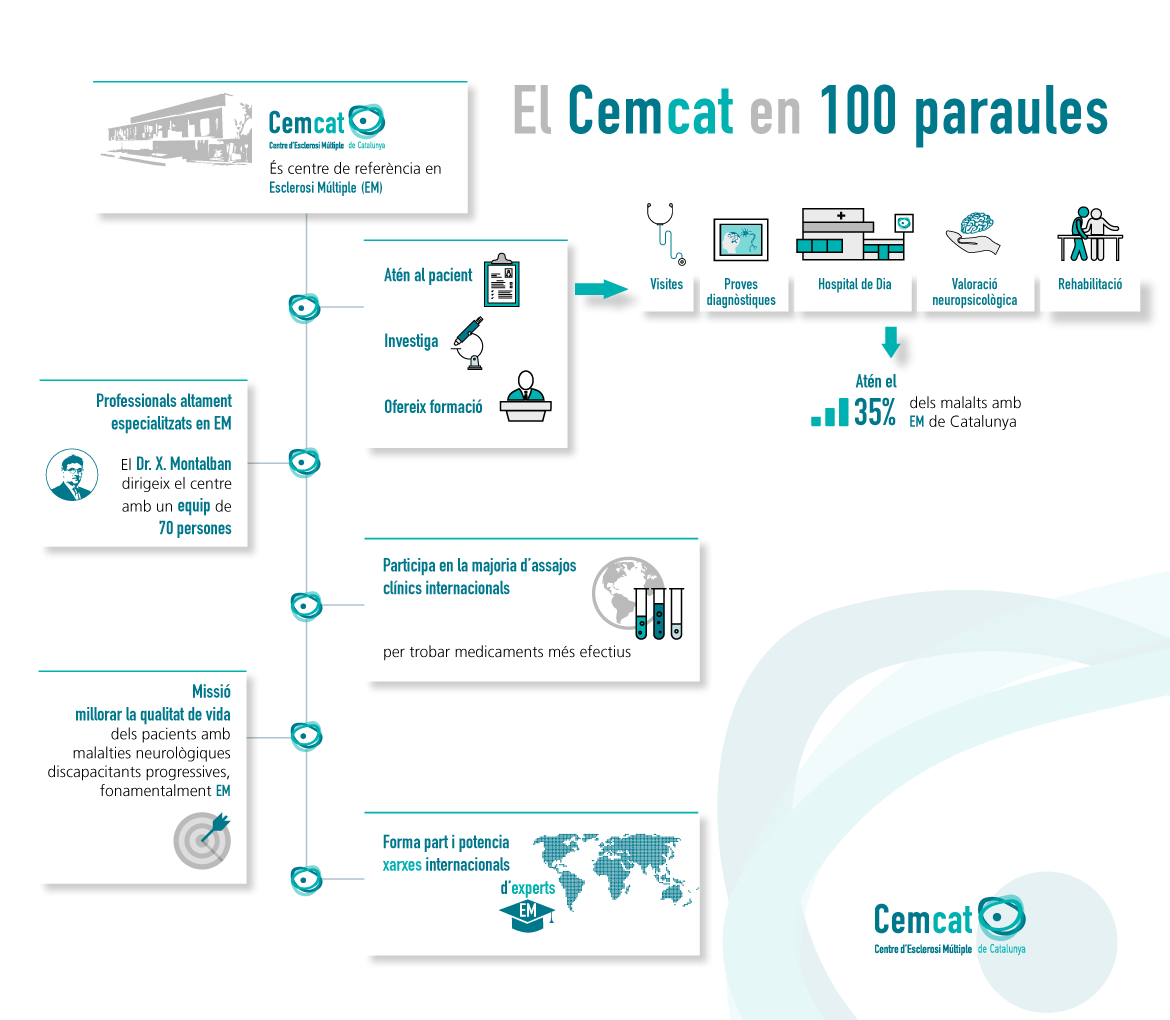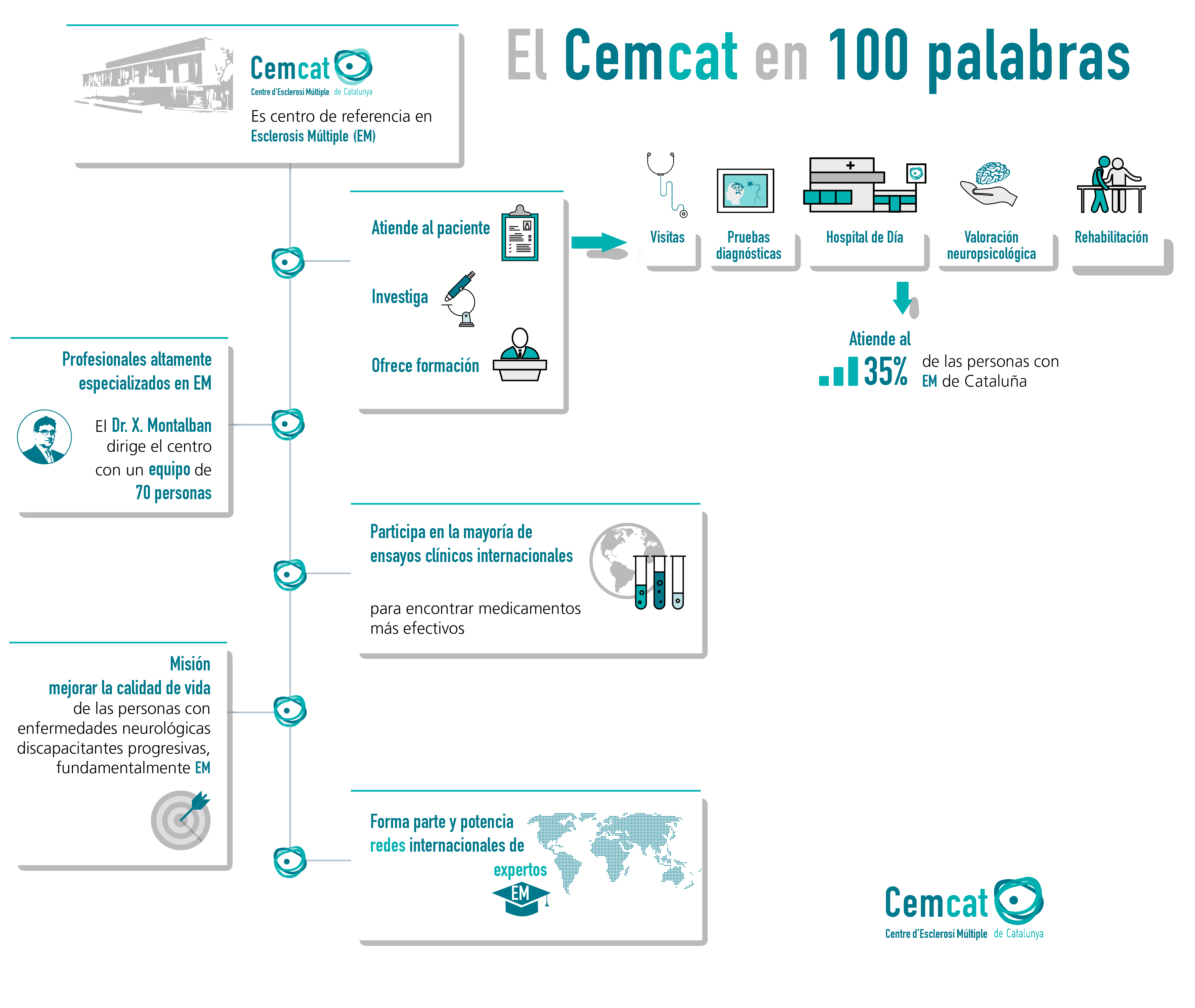You are here
Cemcat, a flagship for research
Research is one of Cemcat's areas of excellence. The high level of basic research and clinical research can clearly be seen in the increasing number of articles published (73 articles during 2021), and also the impact factor (753,76 in 2015).
90% of Cemcat's research is derived from the clinical monitoring of people with multiple sclerosis.
Clinical research also includes clinical trials to discover new drugs. Since 2017 until now the European Medicines Agency (EMA) has authorized the placing on the market of six new drugs, and it should be emphasised that Cemcat took part in the clinical trials of all these products.
Cemcat's aim is to encourage research at all levels, in particular research focused on improving the provision of services and opportunities for the incorporation of innovations.
Research at Cemcat
Collaborative
- More than 20 projects in progress nationally and internationally.
- Long-term collaboration and performance with the Magnetic Resonance and Neuroradiology research group.
With a focus on transfer
Communication between basic research and clinical research to transfer and apply the knowledge generated for the benefit of patients. The aim is to improve diagnosis and treatment and better understand the disease.
For more than 20 years, Cemcat has systematically gathered data on the evolution of all patients prescribed treatment at the centre.
Clinical Neuroimmunology Research Group of the Vall d'Hebron Research Institute (VHIR)
Research at Cemcat is structured by the VHIR Clinical Neuroimmunology Research Group, headed by Dr Xavier Montalban, and with Cemcat professionals as its researchers.
The key aims of the group are, in accordance with Cemcat's mission, to improve the quality of life of patients with multiple sclerosis and obtain a better understanding of pathogenic mechanisms, so as to be able to develop increasingly effective treatments.
Cemcat research likewise has an interest in susceptibility to the disease, the prognostic and diagnostic markers of MS, the study of the response to treatment, the clinical and radiological study of primary progressive multiple sclerosis, and the epidemiology of MS.
Clinical research at Cemcat includes:
- Purely clinical research based on the observational monitoring of patient groups defined in order to establish the prognosis or response to treatment. This allows for appropriate monitoring of patients and a more rapid evaluation of the effectiveness results of new drugs.
- Specific work to establish the clinical usefulness of techniques such as, essentially, magnetic resonance, but also, for example, computerised optical tomography studies.
- All clinical research conducted within the context of clinical trials.
Basic research includes animal models and studies of biological samples taken from humans. It covers the search for bio-markers (chemical substances used as indicators of a biological state) in the diagnosis of the disease or the response to treatment. This likewise includes the search for new targets and/or approaches in therapy.



